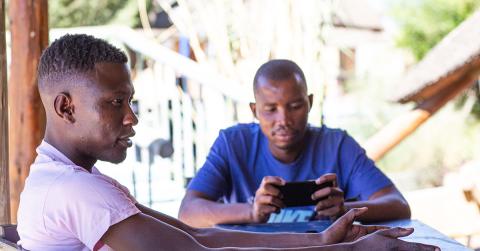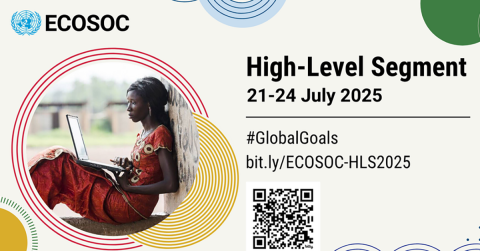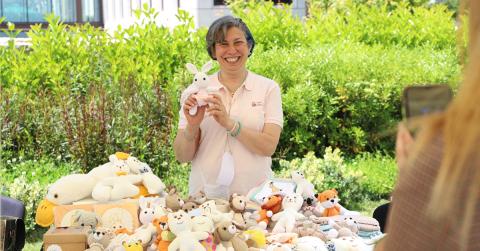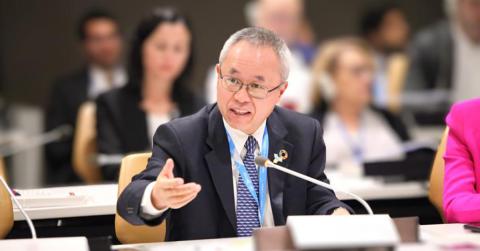Ensuring respect and effective support for families
Each year on 17 October, the world comes together to mark the International Day for the Eradication of Poverty. First commemorated in 1987 and recognized by the United Nations in 1992, the Day is a call to action: to put the furthest behind first, to amplify the voices of people experiencing poverty, and to renew our shared commitment to end poverty in all its forms everywhere.
Clean water and sanitation in focus as preparations kick off for 2026 conference
Every family deserves safe water at the turn of a tap. Yet for too many people, water still means a long walk, a heavy bucket and an uncertain tomorrow. That’s why preparations are now in full swing for the 2026 UN Water Conference (mandated by the General Assembly in resolution 77/334) which will put clean water and sanitation front and center.
EnergyNow SDG7 Action Forum to drive progress on just energy transition
Energy experts, advocates and government delegates from around the world will gather on 24-25 September 2025 on the margins of the UN General Assembly High-Level Week for the EnergyNow SDG7 Action Forum, seeking innovative solutions to end energy poverty and advance a just energy transition. The annual event is convened by UN-Energy, the inter-agency coordination mechanism on energy within the UN system, for which UN DESA serves as secretariat.
New data to reveal progress and gaps in gender equality
On 15 September 2025, UN Women and UN DESA will launch the Progress on the Sustainable Development Goals: The Gender Snapshot 2025, the latest edition in an annual series. Covering all 17 Sustainable Development Goals (SDGs), the report spotlights the latest data and evidence on gender equality, tracking trends and revealing progress and gaps.
Ensuring Indigenous Peoples’ rights in the age of AI
Artificial intelligence (AI) is reshaping our world at an unprecedented pace. For Indigenous Peoples, this technology can bring both significant challenges and promising opportunities.
Strengthening partnerships for SIDS: A renewed commitment through the ABAS Agenda
The 2030 Agenda for Sustainable Development affirms that partnerships are essential to delivering lasting results—particularly for small island developing States (SIDS), whose development needs are both unique and urgent. The SIDS Partnership Framework, established following the 2014 SAMOA Pathway and anchored in A/RES/70/202, remains a cornerstone for mobilizing, monitoring, and advancing genuine and durable partnerships for SIDS.
ECOSOC convenes its High-level Segment
The High-level Segment of ECOSOC, including the three-day ministerial segment of the HLPF, will be convened from Monday, 21 July, through Thursday, 24 July 2025. The theme of the 2025 ECOSOC and HLPF is Advancing sustainable, inclusive, science- and evidence-based solutions for the 2030 Agenda and its SDGs for leaving no one behind.
Cooperatives: Building a better world through inclusion and sustainability
On 5 July, the United Nations celebrates the International Day of Cooperatives, honouring the unique contributions of cooperatives to inclusive and sustainable development. This year’s theme—Cooperatives: Driving Inclusive and Sustainable Solutions for a Better World—reflects the growing recognition of cooperative enterprises as essential actors in addressing today’s global challenges.
Youth Localizing the SDGs: 2025 International Youth Day to spotlight local solutions
Each year on 12 August, International Youth Day (IYD) brings global attention to the challenges and opportunities facing young people. Spearheaded by UN DESA, IYD celebrates youth contributions to all aspects of global development.
UN DESA Under-Secretary-General Li Junhua joins online community on LinkedIn
“At the United Nations, we represent diverse voices connected by a shared purpose: building a more inclusive, equitable and sustainable world. I’m glad to join LinkedIn as part of this community and look forward to the rich and scholarly discussions around the most pressing global issues of our time,” said UN DESA’s Under-Secretary-General Li Junhua as he joined the platform on 28 May 2025.
 Welcome to the United Nations
Welcome to the United Nations









